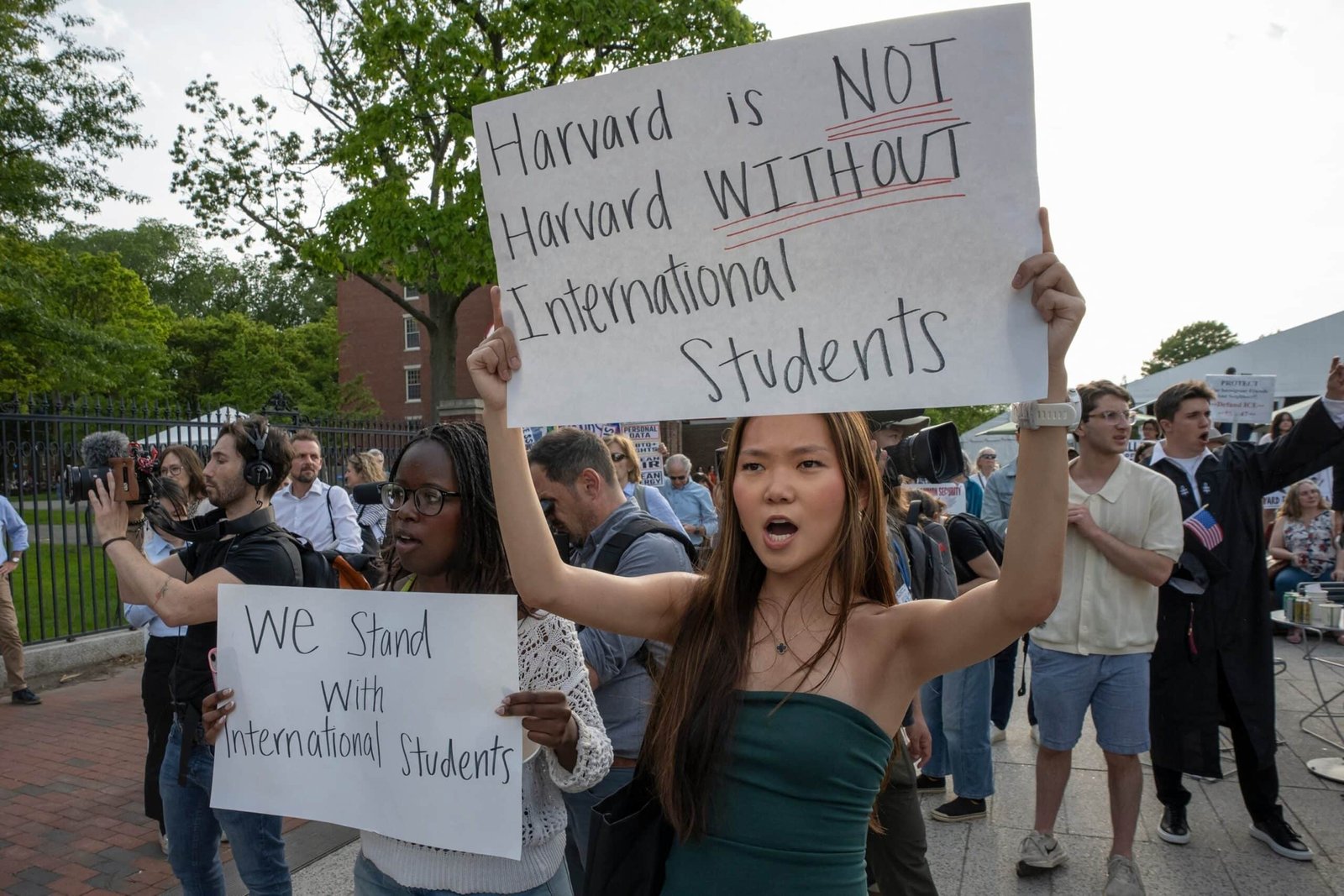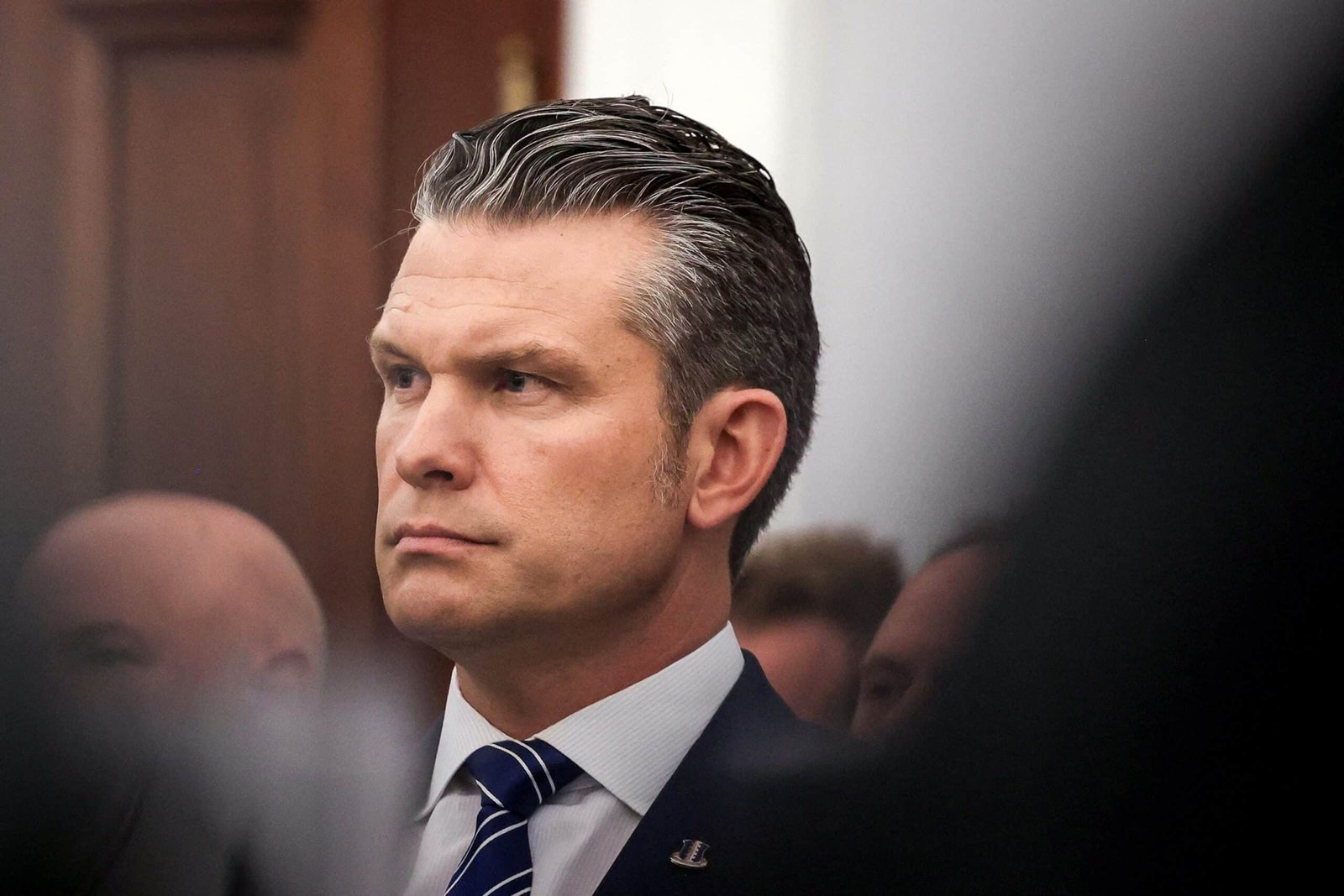The judge expanded the block on Trump’s ban which prohibited Harvard students from entering us

The temporary detention order to President Donald Trump prohibits Harvard University students who enter the US will remain valid until next Monday while the Federal judge considers the argument made for the preliminary order.
The temporary block will end on Thursday before being extended Monday by the US District Court judge Allison Burroughs.
Lawyer Harvard argues that the proclamation of Trump violates the first amendment rights and is outside the executive branch authority. Registering actions taken by the government against Harvard in recent weeks, lawyer Ian Gershengorn argued in a Monday court hearing in Boston that the move was retaliation and discrimination of viewpoint against the institution.
Gershengorn argues that the president does not limit entry, but limits what you do and with whom you hang out after you enter. The permitted way to classify alien classes is based on alien characters, according to him.
The government pushed back, on the grounds that the government did not “trust” Harvard and that they did not monitor the “alien” brought to the US that the government said to bring foreigners was a privilege, not the right, according to Tiberius Davis, a legal advisor to the Assistant of the Attorney General.
“We do not trust Harvard to serve, host, monitor, or discipline” foreigners, Davis argues. Davis also expressed concern about Harvard’s “foreign attachment” with the Chinese government and said it did not provide sufficient information to the government about Foreign Students – who was rejected by Harvard.

People hold signs during the Harvard student money meeting for freedom to support international students at the Harvard University campus in Boston, Massachusetts, May 27, 2025.
Rick Friedman/AFP via Getty Images
Harvard University filed a lawsuit against the government after the Secretary of the US Department of Domestic Security Department Kristi Noem announced that they canceled the certification of student visitors and exchange programs, which would prohibit schools from registering foreign students.
The lawsuit was then changed to enter the proclamation and Harvard moved to ask for the second block on the proclamation of Trump. It will take effect for at least six months before being blocked by Burroughs.
The judge questioned the argument made by the government for his concerns about Harvard which motivated the proclamation.
“I can’t imagine that whatever you just described applies to Harvard,” Burroughs said.

The Harvard sign was seen on the Harvard University campus in Boston, Massachusetts, May 27, 2025.
Rick Friedman/AFP via Getty Images
Davis believes that the government is free to investigate other institutions and say that “many other universities are willing to” do more to overcome problems on campus.
Davis also believes that different government institutions chose to end the grant with Harvard because they believe the institution did not follow the law, saying that the move was also not retaliation. Davis also said Harvard was not chosen by stopping the grant because other institutions suffer the same thing.
The government believes that it does not choose Harvard, but other institutions are more willing to take action to overcome problems on campus, while Harvard has not, said Davis.
“There is a lack of evidence of retaliation here,” Davis said in court.

People hold signs during the Harvard student money meeting for freedom to support international students at the Harvard University campus in Boston, Massachusetts, May 27, 2025.
Rick Friedman/AFP via Getty Images
Burroughs says if the point is to eradicate antisemitism, “Why don’t we let people from Israel?”
Davis believes that antisemitism is just one part of this problem, along with foreign attachments and does not provide sufficient information to the government. Because of their other behavior on campus and lack their attention to them “We don’t trust them,” Davis said.
“They don’t have to pull over to all the speeding people. Frankly they cannot do that,” Davis said.
Encouraging the argument that they did not monitor their students, Harvard said it was the government’s responsibility to examine students permitted to the country.
“The examination was carried out by the Department of Foreign Affairs in their visa process,” said Gershengorn.
At one point in the trial Monday, the judge asked the lawyer Harvard why he did not mention the name of the President in his lawsuit, asking if he needed to appear in this case.

People walk through Harvard Yard at the Harvard University campus in Cambridge, Massachusetts, April 15, 2025.
Joseph Prezios/AFP Via Getty Images
Gershengorn said it was suing people assigned to implement the proclamation.
Gershengorn argues that the use of Trump on the proclamation to block the entry of foreign harvard students is “a broad new authority to regulate the domestic behavior of domestic institutions,” the departure of how this proclamation has been used in the past. Gershengorn said it had been used to block the entry of individuals or citizens of a country that had “done something bad.”
The question is not whether his actions are legitimate or not, Gershengorn argues. If a valid action is taken as a motivated action of the first amendment, it is no longer valid, he added.
Gershengorn said that what Harvard had suffered for the past two months was probably the most “irregular” and “inappropriate” action suffered by any institution.

People entered and exit the Harry Elkins Widener’s warning library at the Harvard University campus in Cambridge, Massachusetts, April 15, 2025.
Joseph Prezios/AFP Via Getty Images
Harvard pushed back to claims there was a widespread violence on campus, saying the story quoted by the government identified two violent incidents based on religion. The government “threw things to the walls to see what sticks,” said Gershengorn.
Harvard accused that administration was in a “retaliation campaign” against the school. After Harvard openly refused to meet the demands made by Trump’s administration, the administration responded by freezing more than $ 2.2 billion in a grant and $ 60 million in a contract for schools.
In April, Harvard filed a separate lawsuit against the funds.






